
December’s Topic of the Month – Coping with Depression and Anxiety
 December 20th, 2017
December 20th, 2017 Nakita Cambow
Nakita Cambow Blog
Blog 0 Comments
0 Comments
Life with lupus can be challenging. With symptoms that come and go and the uncertainty of what each day will bring, it’s normal to experience feelings of unhappiness, frustration, anger, or sadness. It’s also normal to grieve for the loss of the life you had before lupus.
 “I suffer from depression due to my lupus. I’m a mum to a little girl and I often feel like I’m failing her because she can’t do what all her friends do as mummy is always so tired and in pain. I used to be able to run around after her all the time, and that is completely gone now. I used to be a very outgoing, confident person, and that’s now completely gone.”
“I suffer from depression due to my lupus. I’m a mum to a little girl and I often feel like I’m failing her because she can’t do what all her friends do as mummy is always so tired and in pain. I used to be able to run around after her all the time, and that is completely gone now. I used to be a very outgoing, confident person, and that’s now completely gone.”
As you learn more about lupus and how to adjust and adapt to necessary life changes, feelings of unhappiness, frustration, anger and sadness should lessen.
However, there is a difference between temporary negative feelings and negative feelings that become overwhelming and long-lasting, which may signal a serious but treatable illness such as clinical depression.
Am I experiencing depression and/or anxiety?
Depression
People are considered clinically depressed when they have a depressed or irritable mood, decreased energy, and other symptoms in the list below that last for more than a few weeks and are severe enough to disrupt daily life.
These are among the most common psychological and physical symptoms of clinical depression:
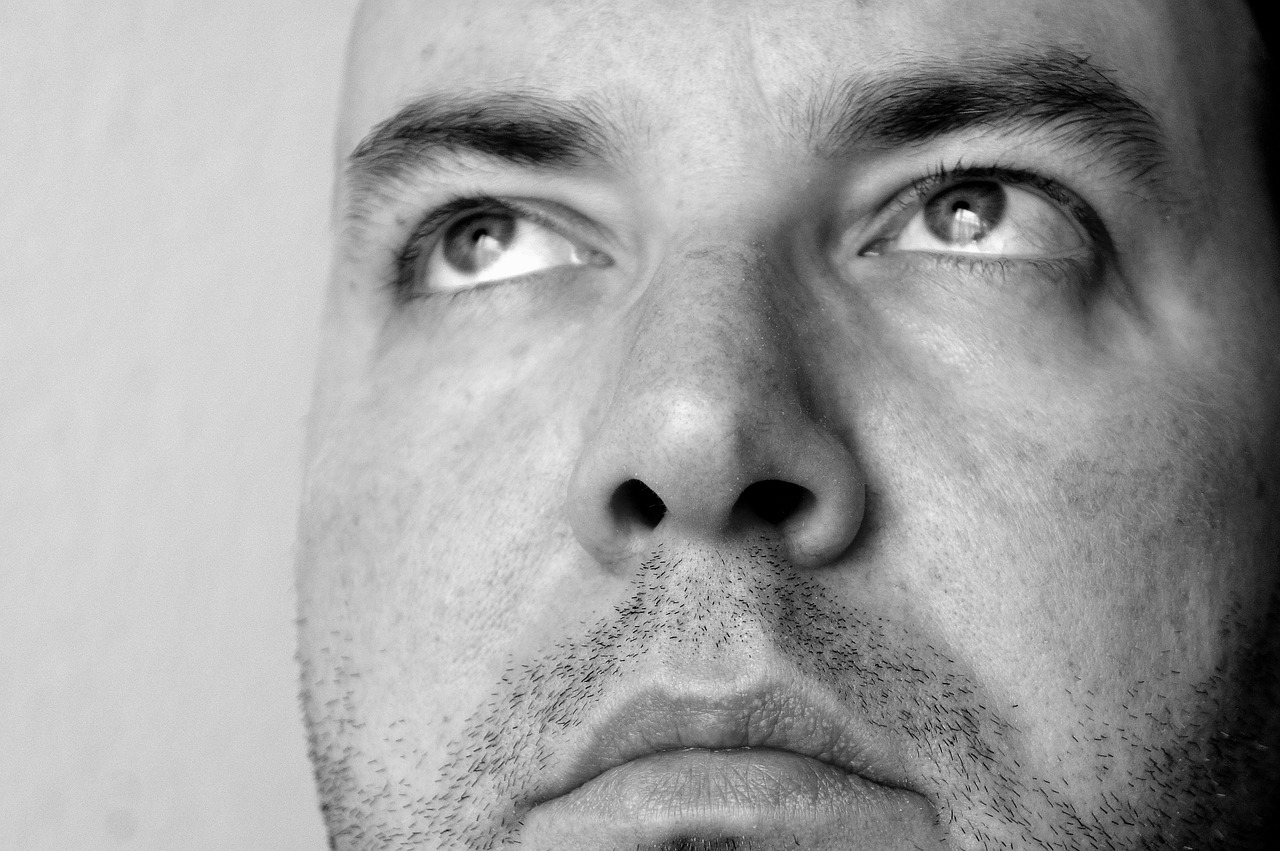 Feelings of helplessness or hopelessness
Feelings of helplessness or hopelessness- Sadness
- Crying (often without reason)
- Insomnia or restless sleep, or sleeping too much
- Changes in appetite leading to weight loss or weight gain
- Feelings of uneasiness, anxiety, or irritability
- Feelings of guilt or regret
- Lowered self-esteem or feelings of worthlessness
- Inability to concentrate or difficulty thinking
- Diminished memory and recall
- Indecisiveness
- Lack of interest in things formerly enjoyed
- Lack of energy
- General slowing and clouding of mental functions
- Diminished sexual interest and/or performance
- Recurrent thoughts of death or suicide
–
Clinical depression may not always be recognised in people with lupus because its symptoms can be similar to those of active lupus (for example; lack of energy and trouble sleeping can be attributed to the lupus itself).
Anxiety
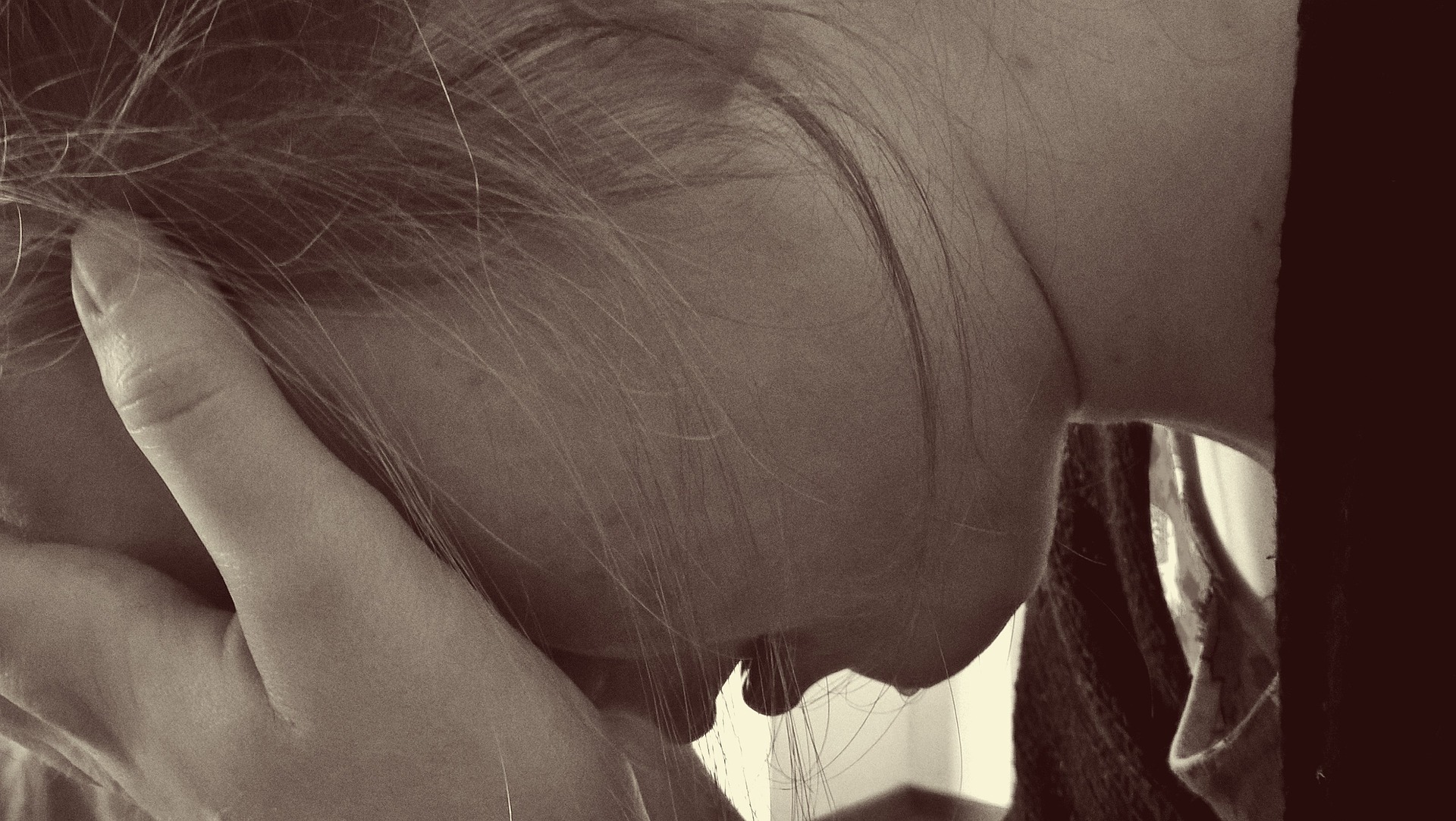 Everyone has feelings of anxiety at some point in their life – for example, you may feel worried and anxious about sitting an exam, or having a medical test or job interview. During times like these, feeling anxious can be perfectly normal. However, some people find it hard to control their worries. Their feelings of anxiety are more constant and can often affect their daily lives.
Everyone has feelings of anxiety at some point in their life – for example, you may feel worried and anxious about sitting an exam, or having a medical test or job interview. During times like these, feeling anxious can be perfectly normal. However, some people find it hard to control their worries. Their feelings of anxiety are more constant and can often affect their daily lives.
Anxiety is the main symptom of several conditions, including panic disorder, phobias (such as agoraphobia or claustrophobia), post-traumatic stress disorder (PTSD) and social anxiety disorder (social phobia). Here we will mostly talk about a specific condition called generalised anxiety disorder (GAD).
GAD is a long-term condition that causes you to feel anxious about a wide range of situations and issues, rather than one specific event. People with GAD feel anxious most days and often struggle to remember the last time they felt relaxed. As soon as one anxious thought is resolved, another may appear about a different issue.
GAD can cause both psychological and physical symptoms. These vary from person to person, but can include:
- feeling restless or worried
- having trouble concentrating or sleeping
- dizziness or heart palpitations
–
The mood self-assessment quiz
 The mood self-assessment quiz uses questions that GPs often use to assess whether someone is anxious or depressed. It also includes links to useful information and advice on mental wellbeing.
The mood self-assessment quiz uses questions that GPs often use to assess whether someone is anxious or depressed. It also includes links to useful information and advice on mental wellbeing.
There are 18 questions altogether. With each one, you’ll need to think about how you’ve been feeling over the past two weeks. You can monitor any ups and downs of your mood by revisiting this self-assessment quiz at any time.
Learn more about the mood self-assessment quiz or give it a go HERE.
Is the depression/anxiety caused by my lupus?
Depression and anxiety can be related to a number of possible factors which can sometimes make it difficult to discern the exact cause(s). The most common cause is probably the emotional drain from the stress of coping with the complications of a long-term physical illness.
Lupus can affect any organs of the body, including the brain. In people who have brain involvement from their lupus, depression, anxiety, and brain fog (cognitive dysfunction) are some of the most common symptoms. It is not currently understood exactly how the neuropsychiatric involvement of lupus can lead to depression, but it is likely due to a complex combination of biochemical abnormalities that affect different parts of the brain. A lupus flare can also trigger clinical depression and anxiety, both because you feel ill, and because it may seem as though you are never going to be free of lupus.
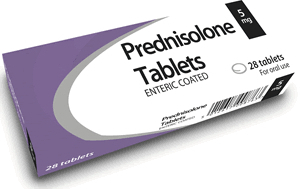 It is possible that some treatments for lupus such as prednisolone (steroids) could trigger or exacerbate depression and/or anxiety. Steroids can have a significant effect on mood and temperament in some people. Even those people not predisposed to depression or anxiety may feel very nervous on the medicine, cry for no apparent reason, and get angry with others very easily. You may find it helpful to inform your loved ones early on that these are potential side effects if you are taking steroids. This is important because you may not notice this problem yourself at all. They may help to point it out to you at an early stage so that you can discuss the problem sooner rather than later with your doctor.
It is possible that some treatments for lupus such as prednisolone (steroids) could trigger or exacerbate depression and/or anxiety. Steroids can have a significant effect on mood and temperament in some people. Even those people not predisposed to depression or anxiety may feel very nervous on the medicine, cry for no apparent reason, and get angry with others very easily. You may find it helpful to inform your loved ones early on that these are potential side effects if you are taking steroids. This is important because you may not notice this problem yourself at all. They may help to point it out to you at an early stage so that you can discuss the problem sooner rather than later with your doctor.
If feelings of depression or anxiety are caused by or exacerbated by steroid treatment, it may help to lower the dose. This should always be done under the direct supervision of your doctor to prevent a flare in your lupus and potential severe withdrawal problems that can occur when steroid doses are decreased too quickly. In situations where you may be unable to currently decrease your steroid dose, sometimes a mood-stabiliser or antidepressant may help.
“I still get very depressed when I’m treated with steroids. It’s a kind of depression, sadness, which I can’t control on my own – it’s beyond my mind’s control. It’s difficult when I have to take them but needed as they have worked well with every flare I’ve had.”
Where can I go for help?
Your GP
It’s important to seek help from your GP if you are struggling with depression and/or anxiety. Many people wait a long time before seeking help for depression, but it is best not to delay. The sooner you see a doctor, the sooner you can be on the way to recovery.
 Your psychological well-being is an important part of your overall health. Keep your doctor informed about how you are feeling; good health is mental and emotional as well as physical. Your doctor can:
Your psychological well-being is an important part of your overall health. Keep your doctor informed about how you are feeling; good health is mental and emotional as well as physical. Your doctor can:
- listen to your concerns
- talk to you about types of treatment
- prescribe antidepressant medication
- suggest lifestyle changes
- refer you to specially trained mental health professionals, such as counsellors, psychiatrists, psychologists or social workers.
–
“My GP is a fantastic support. At the height of my anxiety and depression she asked to see me a couple of times a week. I was referred for CBT and it helped immensely; I had that for almost a year. I was also offered fluoxetine medication alongside the CBT which I’m still taking.”
“I am in a regular contact with my Lupus Nurse now which is a great support.”
Mental Health Charity Support Services
Various mental health charities provide support services ranging from information, advice, online support, group meetings and other local services. To learn more about some of these organisations and some of the services they provide, please take a look at our leaflet, ‘LUPUS and Depression’ HERE.
If you feel like hurting yourself or other people
– Call 999
– Go to your nearest Accident and Emergency department (A&E)
What treatment/therapy is available?
First, your doctor should verify that the depression/anxiety is not due to central nervous system lupus or medications that you are taking. Chemical or biological depression is treated differently from reactive or psychological depression.
Treatment for depression and anxiety can involve a combination of lifestyle changes, talking therapies and medication. Your recommended treatment will be based upon how you are affected.
Talking therapies
 Your GP may recommend a talking treatment (a type of psychotherapy). There are different types of talking therapy for depression, including cognitive behavioural therapy (CBT) and counselling. Your GP can refer you for talking treatment or, in some parts of the England, you might be able to refer yourself. You can find your local psychological therapies service HERE.
Your GP may recommend a talking treatment (a type of psychotherapy). There are different types of talking therapy for depression, including cognitive behavioural therapy (CBT) and counselling. Your GP can refer you for talking treatment or, in some parts of the England, you might be able to refer yourself. You can find your local psychological therapies service HERE.
“I actually think everyone could benefit from CBT! It was great just to talk to someone without feeling judged or who knows you. It gives you good strategies and useful steps for coping with flares, bad times and how to cope with a long term condition. If you are thinking about it go for it.”
“I had counselling via my GP for 18 months and it was a real life saver. My GP also arranged for me to go on a Living Well course arranged by my local health authority which was led by a psychologist and physiotherapist. It was very worthwhile and certainly helped with dealing with the fatigue as well as recognising and dealing with the boom and bust cycles that we go through.”
“From my experience I would say not to count it out if it doesn’t work initially or you don’t develop confidence in your therapist. The process does work when you get the right person and right method.”
Drug therapy
 Antidepressants are tablets that treat the symptoms of depression. There are almost 30 different types of antidepressant. They have to be prescribed by a doctor, usually for depression that’s moderate or severe. You can learn more about antidepressant medications HERE.
Antidepressants are tablets that treat the symptoms of depression. There are almost 30 different types of antidepressant. They have to be prescribed by a doctor, usually for depression that’s moderate or severe. You can learn more about antidepressant medications HERE.
Anti-anxiety medicines are also available to reduce worry and fearful feelings. In some people, improvements can occur in a matter of weeks once medication is started.
For moderate to severe depression and anxiety, a combination of talking therapy and antidepressants is often recommended. If you are experiencing severe symptoms then you may be referred to a specialist mental health team for intensive specialist talking treatments and prescribed medication.
Mindfulness
Mindfulness involves paying closer attention to the present moment, and focusing on your thoughts, feelings, bodily sensations and the world around you to improve your mental wellbeing. The aim is to develop a better understanding of your mind and body, and to learn how to live with more appreciation and less anxiety.
Mindfulness is recommended by NICE as a way of preventing depression in people who have had three or more bouts of depression in the past.
You can read more about mindfulness HERE.
“I learned mindfulness which is a fantastic tool for anxiety.”
Other treatments
You can read more about the treatments above and other options available for depression HERE, and for generalised anxiety disorder (GAD) HERE.
“I have really bad anxiety and depression and have done for years (it got worse four years ago when I experienced a stillbirth). I have been referred by my Lupus Nurse and I’m currently 9 weeks into a 13 week ‘Lifestyle Management’ course. The course is designed to help re-train your brain on how to cope with pain/anxiety and the day-to-day living with a chronic condition. It features meditation, gentle exercise and health &well-being insight too. I’ve tried CBT but I’ve had a lot more out of this (I believe this is because it’s a bit more like ‘group therapy’ and everyone can appreciate what you’re experiencing and the worries and anguish that goes alongside it). We all have our good and bad weeks (always will) but we now have tools to help the good days become better and make the bad a little more bearable. I never thought 9 weeks ago I’d enjoy meditation as I classed myself as ‘too wired’ to relax…it really has made some difference to my days.”
What can I do myself?
Many people experiencing depression and/or anxiety can benefit by making some changes to their lifestyle.
“I’ve used the ‘5 Ways to Wellbeing’ approach to mood maintenance as a basis for staving off depression. It’s been quite effective, and I’ve been fortunate because, as a mental health professional, I have lots of experience and resources I could draw on.”
Diet and Exercise
 Exercise and a healthy diet can make a significant difference to how quickly you recover from depression/anxiety. Both will improve your general health as well.
Exercise and a healthy diet can make a significant difference to how quickly you recover from depression/anxiety. Both will improve your general health as well.
A healthy diet can help lift your mood and is just as important for maintaining your mental health as it is for managing your lupus. You can learn more about lupus and healthy eating in our blog article HERE.
Research suggests that exercise may be as effective as antidepressants at reducing the symptoms of depression and anxiety. Being physically active can lift your mood, reduce stress, encourage the release of endorphins (your body’s feel-good chemicals) and improve self-esteem. Exercising may also be a good distraction from negative thoughts, and it can improve social interaction.
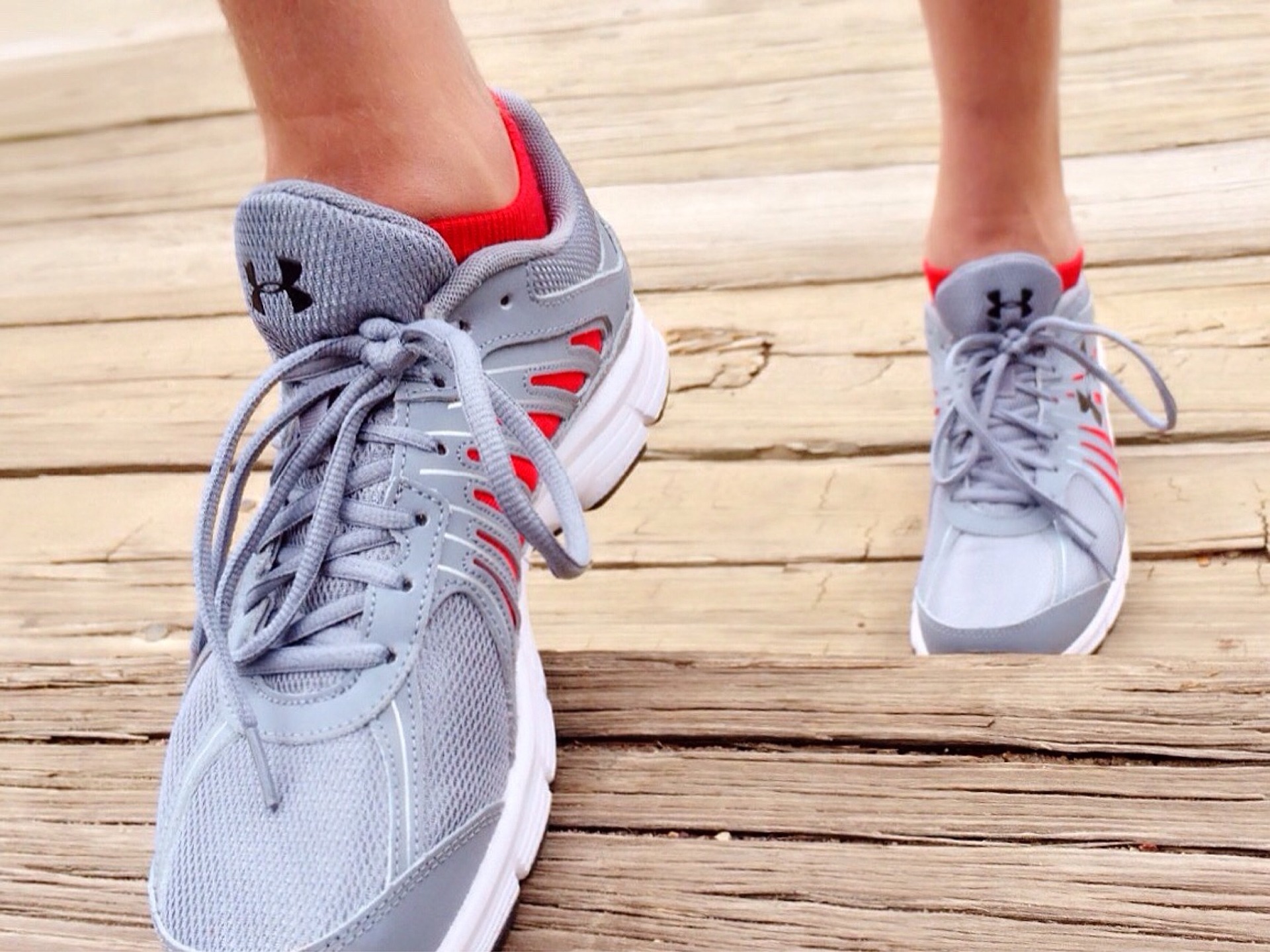 Just like everyone else, where possible, people with lupus need to exercise regularly or engage in some kind of movement. Not everyone with lupus can do a wide range of exercises, but most people with lupus can take part in some form of activity. You can learn more about exercising with lupus in our blog article HERE.
Just like everyone else, where possible, people with lupus need to exercise regularly or engage in some kind of movement. Not everyone with lupus can do a wide range of exercises, but most people with lupus can take part in some form of activity. You can learn more about exercising with lupus in our blog article HERE.
“The combination of fresh air, vitamin D supplements and gentle exercise (and being at one with the natural world for a period of time during the week) has been far more important to me than any specific diet or medication.”
Find ways to reduce pain
Chronic pain can be a factor in the development/exacerbation of clinical depression and anxiety. For tips and advice on managing pain in lupus, please take a look at our blog article HERE.
Improve your sleep habits
 Not getting enough restful sleep can cause or contribute to many health problems, including symptoms of depression. Whilst everybody has different sleep requirements, at least seven hours a night is recommended for people with lupus. It is also important to be aware that too much sleep isn’t healthy either as spending all day in bed can cause muscles to weaken, which can contribute to feelings of fatigue.
Not getting enough restful sleep can cause or contribute to many health problems, including symptoms of depression. Whilst everybody has different sleep requirements, at least seven hours a night is recommended for people with lupus. It is also important to be aware that too much sleep isn’t healthy either as spending all day in bed can cause muscles to weaken, which can contribute to feelings of fatigue.
If you have difficulty establishing a good sleeping pattern it may be worth examining your personal sleep hygiene and potentially making some changes to your evening routine. The NHS website’s sleep section has some great articles and resources available HERE.
Manage your stress levels
 Excessive or prolonged stress can contribute to mental health problems such as anxiety and depression. In addition stress is often reported as a trigger for lupus flares and therefore managing stress levels should be an important aspect of health care for anyone with lupus.
Excessive or prolonged stress can contribute to mental health problems such as anxiety and depression. In addition stress is often reported as a trigger for lupus flares and therefore managing stress levels should be an important aspect of health care for anyone with lupus.
You can get tips and advice for managing stress in our blog article HERE.
“I have found Headspace meditations really helpful for coping with having a chronic illness.”
Build a support system
Stay in touch with family members and long-time friends. Make phone calls, try videoconferencing, or consider adding an animal companion to your family.

Many people with lupus find it helpful to speak to other people with the condition who have similar experiences and can understand the impact that lupus can have. This can help you gain a better understanding about what causes you to feel depressed or anxious. Sharing your experiences with others in a similar situation can also be very supportive;
- You can find your nearest Regional Lupus Support Group HERE.
- You can chat to other people with lupus in our Online Community Forum on HealthUnlocked HERE.
- We have a network of over 100 trained volunteer telephone contacts who you can call and chat with. A full list of contacts is available in the back cover of each edition of LUPUS UK News & Views magazine, or you can contact us for details.
–
 “Here’s what has helped me the most; 1) Setting myself small but meaningful tasks to fill each day; 2) Doing little things to help make my garden wildlife friendly – the bonus being that I get to watch the birds, butterflies and hedgehogs that come to visit; 3) Using Skype to keep in touch with people who I can no longer visit or meet up with; 4) Sending random messages or little gifts to people I care about; 5) Finding the LUPUS UK forum – where so many people have helped me feel less isolated.”
“Here’s what has helped me the most; 1) Setting myself small but meaningful tasks to fill each day; 2) Doing little things to help make my garden wildlife friendly – the bonus being that I get to watch the birds, butterflies and hedgehogs that come to visit; 3) Using Skype to keep in touch with people who I can no longer visit or meet up with; 4) Sending random messages or little gifts to people I care about; 5) Finding the LUPUS UK forum – where so many people have helped me feel less isolated.”
“Learning about lupus, symptoms, treatments and my new life with lupus truly helped with depression. After so many years with lupus, it is more difficult to keep depressed. My family’s support was essential, as was meeting compassionate people and other lupus patients.”
Change your self-talk
Feelings of anger and self-pity can bring on unproductive thoughts; for example, “It’s not fair.”, “Why me?” or “I’m too weak to fight off this illness.”
Replace negative, self-defeating inner language with truthful, productive thoughts, such as: “I feel lousy, but I have a lot of good things in my life.”
You can also list the people and things in your life for which you are grateful: A loving spouse or significant other; your children, and the children of your extended family; caring relatives; good friends; a beloved pet; work or hobbies you enjoy and are able to do; a home you love; or volunteer activities. Try to add to this list every day!
“I do go on and on about knitting, but for me it’s a good way to switch off from other thoughts and is my favourite form of mindfulness. As an experienced knitter I have ways of coping, even with painful sausage fingers, but I think other hobbies that don’t require much physical effort can help. Here’s a link; it’s about knitting and crochet, but the principles behind it could apply to other crafts – http://stitchlinks.com/index.html.”
Strive to accept the new “you”
 With lupus you will most likely have to adapt your lifestyle. You may find it helpful to pace yourself and ask for help, and accept help graciously. It is important to focus on what you have and what you can do, rather than what you don’t have and can’t do.
With lupus you will most likely have to adapt your lifestyle. You may find it helpful to pace yourself and ask for help, and accept help graciously. It is important to focus on what you have and what you can do, rather than what you don’t have and can’t do.
“Understanding the basic mechanisms behind my symptoms has been a way of avoiding occasional depression and frequent anxiety attacks. What I can make sense of I can better accept. Acceptance is the key to swimming and not drowning for me.”
Over-the-counter treatments
You may consider over-the-counter treatments for your depression and/or anxiety. It is important to discuss all herbs and supplements with your rheumatologist before trying them as certain ingredients can potentially have adverse effects in people with lupus or interact with other treatments you may be taking.
LUPUS and Depression
Further information about depression in lupus can be found in our leaflet, ‘LUPUS and Depression’. This leaflet includes information about a range of support services that are provided by various mental health organisations. You can read and download the leaflet HERE.
NHS Moodzone
NHS Moodzone offers whatever you need to know about boosting your mood, coping with stress, anxiety or depression, or improving your overall wellbeing. It offers practical, useful information and interactive tools and videos to support you to feeling better.
***Please note that this article is written for informational purposes only and should not be a substitute for professional medical advice or treatment. Do not delay seeking or disregard medical advice based on information here. Always seek the advice of your local family physician or other qualified health professional before starting any new treatment or making any changes to existing treatment. It is also advisable to consult a medical professional before making any changes to diet or starting alternative remedies, which may interact with other medications.***
Thank you so much to everybody who submitted their tips and experiences for this month’s topic. We’re sorry if we weren’t able to use your comment in the article this time.

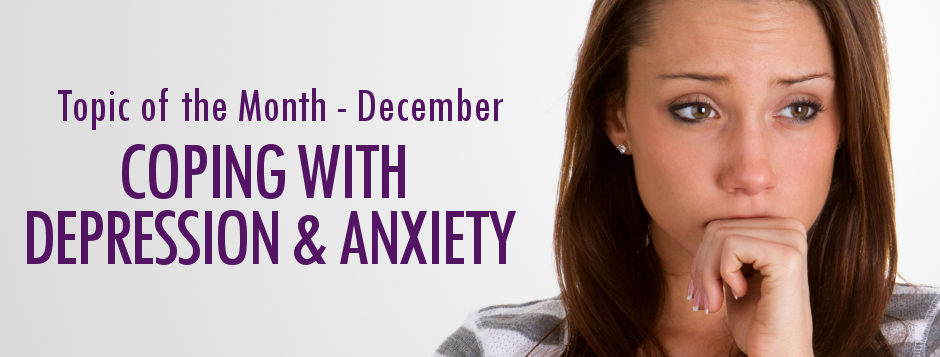


 ©2024 LUPUS UK (Registered charity no. 1200671)
©2024 LUPUS UK (Registered charity no. 1200671)